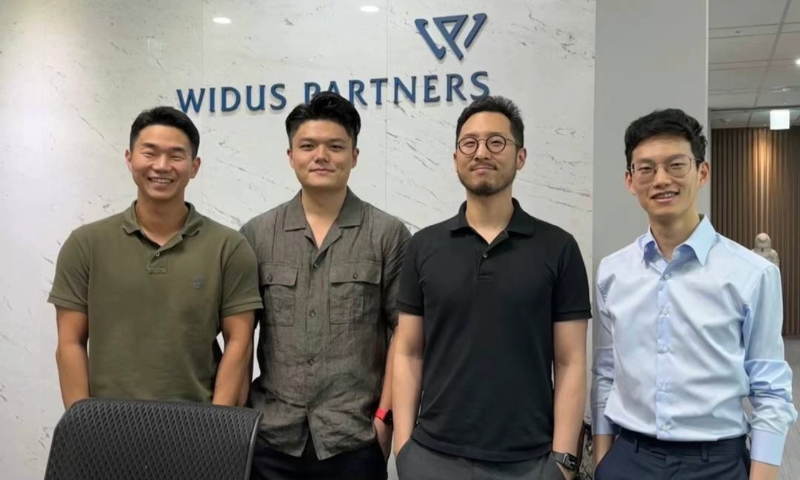Erik Cheong, a seasoned entrepreneur who has seamlessly transitioned into the world of venture capital, embodies the spirit of innovation and success in Southeast Asia’s dynamic business landscape. Co-founding Park N Parcel in 2016, he garnered recognition as one of Forbes’ 30 Under 30 in Asia for Consumer Technology in 2019. Notably, Erik’s entrepreneurial prowess was honored with the Quest Ventures – EDGE National Youth Entrepreneurship Award in 2018.
An esteemed member of the eFounders Fellowship by Alibaba Global Initiatives and a distinguished participant in the 500 Global Launch Cohort, Erik’s journey has been widely covered by reputable media outlets, including CNBC, Nikkei Asian Review, Yahoo Finance, and CNET, among others.
Before assuming his role as a Venture Partner at Widus Partners, Erik Cheong served as the Chief Executive Officer of GCL Asia, overseeing operations across seven countries. GCL’s footprint extends to connecting developers, publishers, and brand owners, fostering entertainment properties that resonate with consumers throughout the region.
In an exclusive interview with CXO Magazine, Erik Cheong shares invaluable insights into his entrepreneurial journey in the Southeast Asian market. From pivotal lessons learned to illuminating opportunities for aspiring entrepreneurs in the region, he delves into current industry trends and more. Here, we present excerpts from our enlightening conversation with Erik Cheong.
Could you please share a bit about your journey from being a serial entrepreneur to your current role as a Venture Partner at Widus Partners?
I am a serial entrepreneur turned venture capitalist. In 2016, co-founded Park N Parcel in Southeast Asia and made it on the Forbes 30 Under 30 Asia in 2019 under Consumer Technology. I was awarded Quest Ventures – EDGE National Youth Entrepreneurship Award in 2018 and also an active member of the eFounders Fellowship by Alibaba Global Initiatives & part of the 500 Global Launch Cohort.
Prior to joining Widus Partners as a Venture Partner, I held multiple management roles as the Chief Executive Officer of GCL Asia (Gaming and influencer Marketing) and OMNi (the First Super App in Central America and the Caribbean). On the side, I have also been an active angel investor since 2018, investing in over 15 startups such as Blood (D2C Female Product), Frontier Digital Asset (Crypto Mining), Nodeflair (HR Tech), and more.
What inspired your transition from entrepreneurship to venture capitalism?
Firstly, I am too old to be an entrepreneur/hustler again; it requires lots of time and effort to build a successful business. Hence, I am becoming a VC. Joke aside, being a venture capitalist enables me to invest in the next generation of entrepreneurs, allowing me to meet cool co-founders and new ideas & business models (Always learning new things and meeting new people/friends).
As an entrepreneur before, I can totally understand the co-founder’s journey. I want to help them grow by sharing my startup/management experience and leveraging the global network I have built over the years.
Last but not least, I want to be part of something cool. It is an amazing experience to support startups from nothing to unicorns (It is like watching a baby grow up to become a young adult). Witnessing how they grow from a small 2-3 man team to a fully structured organization is the kind of sense of accomplishment that motivated me to stay in the technology industry.
Drawing from your experience co-founding Park N Parcel, what key lessons did you learn as an entrepreneur in the Southeast Asian market?
I have 101 Key Lessons, but these are my top 3:
- Always Learning with an open mind (Pick up new skills along the entrepreneur journey)
- Localization Strategy for your business (SEA is not a one-size-fits-all market/region)
- Fail Fast and Scale Faster (Learn to pivot your business model if required)

How do you see the startup landscape evolving, particularly in Southeast Asia, and what opportunities do you foresee for aspiring entrepreneurs?
Many startups are evolving from the B2C Model to the B2B Model (Balancing Probability and Growth) and focusing more on deep technology. The B2B model gives you more stable and larger revenue but takes a longer time to get them on board as customers or adopters. Over the years, many B2C startups turned Unicorn / Tech Titan is still loss-making, and many layoff exercise is happening right now (For example, Grab / SEA)
I witnessed more startups moving into more mature markets like Japan, Hong Kong, and Korea, where consumer spending is higher and credit scores are better than in countries like Vietnam, Indonesia, and the Philippines. In 2016-2020, many startups focused a lot more on Indonesia due to high TAM / SAM / SOM.
Technology startup funding is drying up due to the high-interest rate environment and availability of better-yield financial products in the market. However, the market is still well funded, but investors are super selective on good projects.
Given the rapid growth of e-commerce, what, in your opinion, are the current trends shaping the industry in Southeast Asia?
The rapid growth of e-commerce has changed the landscape from traditional online shopping channels via websites/mobile apps to live streaming and social media channels.
Many individuals have turned into social sellers to sell or market products via live streaming platforms, giving consumers more product insight and creating some form of entertainment for viewers (Less viewership for traditional media advertisements like TV/Radio/ Newspapers and Magazine)
Using Key Opinion Leaders to market products/services via social media platforms, focus more on lifestyle adoption (FOMO & Trendy) rather than direct product /services selling strategy.
How can startups leverage these trends to stay competitive and foster innovation in the e-commerce space?
In every trend/industry, there will be many pain points to be solved. It is important to find your USP in the business model and innovation. For example, instead of building the entire car, focus on creating affordable and world-class tires/rims to serve the global car manufacturing brands.
For e-commerce, there are 3 pillars: Shopping Platform (Data protection/Fraud and customer experience), Logistics (Speed and convenience), and Payment (Safe and secure). Within these 3 pillars, you will be able to find your competitiveness and innovation within the ecosystem builders.
As a technology expert, what emerging technologies do you find most promising for businesses in the next few years?
- AI/Blockchain (High adoption and have seen more successful use cases recently)
- ESG / Climate Change (More Corporate awareness, supported by government agencies)
- Space Tech (Inspired to be the Next Elon Musk or Jeff Bezos)

How can companies, especially startups, effectively integrate and harness the power of these technologies for sustainable growth?
It is important to integrate a sustainable growth strategy with sustainable business model. Giving an example of one ESG startup I came across recently.
“The startup helps food brands to sell expiring food products at 1/3 the original price to avoid food wastage. At the same time, this allows the consumer to buy super cheap food products, knowing that they will expire soon and, therefore, need to be consumed quickly. This creates a win-win situation for the earth, the consumer, and the brand owners.”
What criteria do you consider when evaluating investment opportunities in the tech and e-commerce sectors?
- Business Model and Growth Rate (80% Small and Medium Enterprise do not need VC funding)
- Valuation (Profit and Loss)
- Market Size / Trend Opportunity (Who are your competitors)
In your experience, what are the key indicators of a startup’s potential for success, and how do you mitigate risks in your investment decisions?
- Founders Profile / Background (Looking for hustlers who cannot take no for an answer)
- Strong technology team and well supported by CTO
During the COVID period, I witnessed strong founders who weather the tough journey, especially for travel & hospitality startups, being able to pivot their business model or find ways to survive.
With your global perspective, how do you see the Southeast Asian market positioned in the global tech and investment landscape?
Southeast Asia is well positioned in the global tech space, and many countries in the region are pushing government initiatives (grants, travel visas, and free trade zones) to promote the setup of more startups. Besides government entities, many larger corporations are setting up CVC to look for startups to add value to their ecosystem and are open to adopting tech solutions.
In terms of setting up global headquarters in this region, I will strongly recommend Singapore as one of the options. The reasons are the following:
- Less Language Barrier (Mainly English)
- Stable Policy and Law (Friendly Foreigner Company Ownership)
- Strong Banking System
- Established Funder Network (HNWs/VCs/Family Office/Financial Institution/Global Corporates)
- Local Government shaping Singapore into MICE / Technology Hub
What advice would you offer to our readers who are aspiring entrepreneurs or professionals looking to navigate the ever-evolving landscape of tech and business?
- Keep Trying and Never Give up (I failed many times before starting Park N Parcel and turned VC)
- Stay Hungary and Foolish (Inspired by Steve Jobs)

